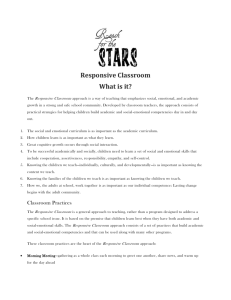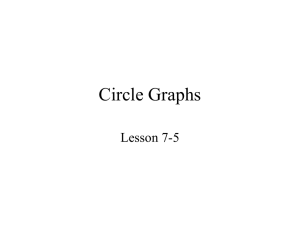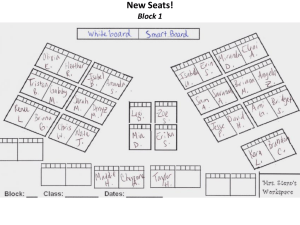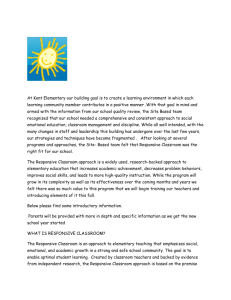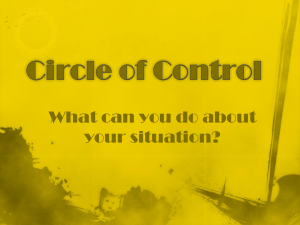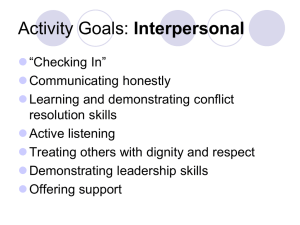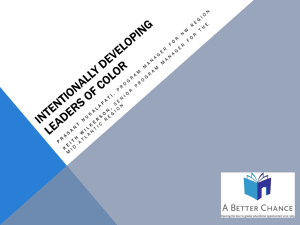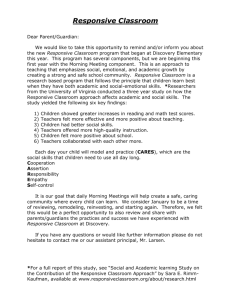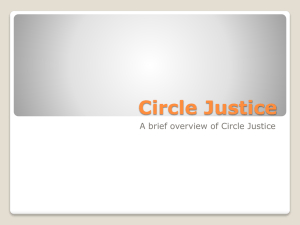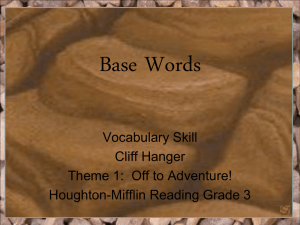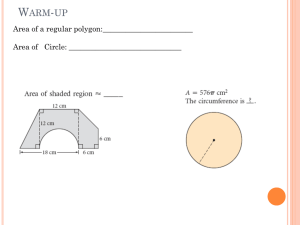Responsive Classroom PCC Meeting website
advertisement
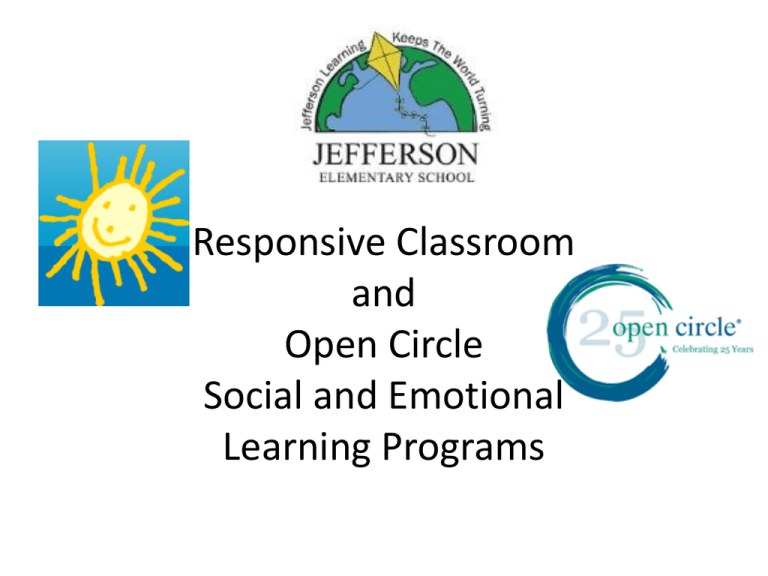
Responsive Classroom and Open Circle Social and Emotional Learning Programs Successful Partnerships • The most accurate predictors of student achievement in school are not family income or social status, but the extent to which the family creates a home environment that encourages learning, communicates high yet reasonable expectations for the child’s achievement, and becomes involved in the child’s education at school. National PTA. 2000. Building Successful Partnerships: A Guide for Developing Parent and Family Involvement Programs. Bloomington, Indiana: National Education Service, 11–12. Open Circle • Open Circle Curriculum is a comprehensive social and emotional learning program that supports elementary school children in developing the skills they need to be successful learners and to form healthy, positive relationships with people throughout their lives. • Twice each week during the whole school year, the class will meet in a circle for about 15 minutes. Lesson topic include listening well, including one another, cooperating, understanding feelings, teasing, bullying, recognizing differences among people, getting calm, problem solving, positive self-talk, and more. • • • • The goals of the lessons are to create a safe, caring and highly engaging classroom environment and to give children the skills they need to succeed academically, solve interpersonal problems and build positive relationships. • You can help your child develop these skills by discussing and practicing them at home. Ask your child to tell you what we talked about in the last Open Circle Meeting or to show you a favorite Open Circle activity. Please take home the sheet which contains some of the vocabulary words that your child will be learning in Open Circle. Responsive Classroom • Responsive Classroom is a research- and evidence-based approach to elementary education that leads to greater teacher effectiveness, higher student achievement, and improved school climate. https://www.youtube.com/watch?feature=playe r_embedded&v=x0mTPUI_994 Guiding Principles The Responsive Classroom approach is informed by the work of educational theorists and the experiences of exemplary classroom teachers. Seven principles guide this approach: 1. The social curriculum is as important as the academic curriculum. 2. The greatest cognitive growth occurs through social interaction. 3. To be successful academically and socially, children need a set of social skills: cooperation, assertion, responsibility, empathy, and self-control. 4. Knowing the children we teach—individually, culturally, and developmentally—is as important as knowing the content we teach. 5. Knowing the families of the children we teach and working with them as partners is essential to children's education. 6. How the adults at school work together is as important as their individual competence: Lasting change begins with the adult community. Responsive Classroom Components • • • • • • • • • • Morning Meeting—gathering as a whole class each morning to greet one another, share news, and warm up for the day ahead Rule Creation—helping students create classroom rules to ensure an environment that allows all class members to meet their learning goals Interactive Modeling—teaching children to notice and internalize expected behaviors through a unique modeling technique Positive Teacher Language—using words and tone as a tool to promote children's active learning, sense of community, and self-discipline Logical Consequences—responding to misbehavior in a way that allows children to fix and learn from their mistakes while preserving their dignity Guided Discovery—introducing classroom materials using a format that encourages independence, creativity, and responsibility Academic Choice—increasing student learning by allowing students teacher-structured choices in their work Classroom Organization—setting up the physical room in ways that encourage students’ independence, cooperation, and productivity Working with Families—creating avenues for hearing parents' insights and helping them understand the school's teaching approaches Collaborative Problem Solving—using conferencing, role playing, and other strategies to resolve problems with students Morning Meeting October 22, 2013 Good Morning Children, Today is Tuesday. We have Library. We have learned the sound of letter /d/ in Fundations. Can you think of a word that begins with the sound of /d/? Love, Mrs. Stanton Our list of /d/ words: October 23, 2013 Good Morning Children, Today is Wednesday. We have Music. Turn to your partner and tell them a teen number and how it is made. For example, 19, is a one and a 9! Love, Mrs. Stanton Sharing Activity Morning Message
